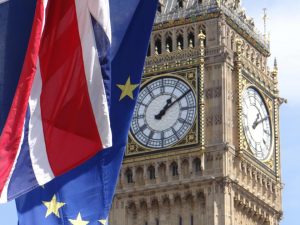By Dr. Peter Dunne, Lecturer in Law (University of Bristol Law School)
 On 6 July, groups and individuals from around the United Kingdom gathered to mark the annual LGBT+ Pride (‘Pride’) festivities in London. An estimated 1.5 million people filled the streets of the nation’s capital – proudly expressing their identity, supporting friends and family, or merely enjoying what has become one of the largest and most popular public celebrations across the country. In 2019, Pride events (both at home and abroad) have a particular significance – coming fifty years after the famous ‘Stonewall Inn Riots’ in New York City, which are often cited as a key moment for developing sexual orientation and gender identity (‘SOGI’) rights in the United States.
On 6 July, groups and individuals from around the United Kingdom gathered to mark the annual LGBT+ Pride (‘Pride’) festivities in London. An estimated 1.5 million people filled the streets of the nation’s capital – proudly expressing their identity, supporting friends and family, or merely enjoying what has become one of the largest and most popular public celebrations across the country. In 2019, Pride events (both at home and abroad) have a particular significance – coming fifty years after the famous ‘Stonewall Inn Riots’ in New York City, which are often cited as a key moment for developing sexual orientation and gender identity (‘SOGI’) rights in the United States.
In the UK, Pride is a time to both celebrate recent advances and to highlight the many, complex challenges which LGBT+ communities still confront. The limited efficacy of non-discrimination frameworks, deficiencies within LGBT+ asylum processes and on-going controversy surrounding the Gender Recognition Act 2004 are just three (among many) challenges which impede full SOGI-related equality within this jurisdiction. Yet, despite the pressing needs of LGBT+ populations in the UK (as emphasised by the National LGBT Survey), issues relating to sexual orientation and gender identity have – like many other important political concerns – been largely drowned out by the all-consuming Brexit debates.
At the London Parade festivities last Saturday, representatives of most of the UK’s main political parties were present – publicly reaffirming their commitment to LGBT+ rights. However, it has been striking to observe the extent to which LGBT+ populations (and the potential impact of leaving the European Union upon their lives) have been absent from Brexit conversations. (more…)

